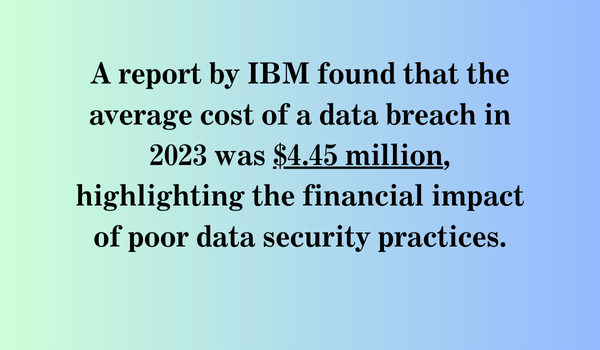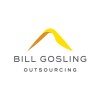Introduction
The soul of Modern Business’s Efficient cash flow is the role of Third-Party Collections. However, a big hurdle is collecting payments on time. Collaborating up with third-party collection agencies (TPC) is one of the strategies businesses deploy to manage receivables efficiently. A vital role is played by TPC by assisting businesses and confronting challenges and steering through the intricacies attached to Account receivables management.
The Global Debt Collection Agencies Market size is worth around USD 39.2 Bn by 2032 from USD 30.2 Bn in 2022. It is growing at a CAGR of 2.7%.
Third-Party Collection Services: A savior or rogues?
No matter what is the proportion of a business, sailing through timely payments is a continuous struggle and it requires efforts at both external and internal echelons. The services of TPC are often required to deliver additional assistance. But the major question here is whether they are saviors who maintain your cashflow or rogues destructing relations with your customers.
In this article we will throw light on the third-party collections of debt in the modern business scene while talking about their advantages and vitality.
Deciphering Third-Party Collections
Organizations that specialize in collecting unpaid debts for businesses are called Third-party collection agencies. These agencies come into action when a company’s internal efforts have failed or are considered inefficient in collecting previous due payments. These companies are well equipped with the technology, expertise, and resources essential to handle collections more competently than various businesses.
A report found that 55% of small and medium enterprises in the UK have outstanding invoices from the 2022/23 tax year.
Market share concentration for the Debt Collection Agencies industry in the UK is moderate, which signifies the chief four companies generate between 40% and 70% of industry revenue.
Discover effective strategies for international debt recovery in our comprehensive whitepaper.
- Achieving Financial Stability: Major advantages of third-party debt collection
- Knowledge and Proficiency- Third-party debt collection agencies are well-versed in the regulatory and legal protocols and equipped with the required proficiency and skills. The knowledge of legal recovery outlines governing debt collection proves effective in developing strategies for debt recovery.
- Resource Competency: Managing an in-house collection team is a resource-intensive task. An army of skilled staff, cutting-edge technology, and time is needed. However, outsourcing to a third-party agency can save resources, and also more concentration can be given to other strategic initiatives.
- Healthy cash flow: For sustainability of a business a healthy cashflow is required and that is ensured by an efficient debt collection by third party agencies. The enhanced cash flow through investment in the company can lead to its progress and expansion.
- Safeguarding Customer Relationships– For debt collection diplomatic and professional techniques are employed by collection agencies. This averts the situation of strained relationship with the customer. This helps in maintaining brand reputation and continuing business with customers.
- Compliance with law– Dealing with a framework of legalities regulating debt collection can be an intricate task for a business. Nevertheless, the third parties are well versed in this legal jargon, ensuring that the collection is confirmed with the various central, state, and local laws.
Best Practices for Selecting a Third-Party Collection
Challenge:
Reputational Risk: Third-party collection agencies that use aggressive and unethical tactics can damage a business’ reputation.
Considerations:
To minimize the risk to your reputation, it is important that the collection agency follows the Financial Conduct Authority regulations and any other applicable rules.
Challenge:
Control loss Outsourcing means losing some control of the debt collection process.
Considerations:
To align goals and practices, businesses must communicate clearly with collection agencies and establish expectations.
Challenge:
Complying with Legal Regulations : Ensure that the collection agency has accurate and up-to date information regarding debts to reduce disputes.
Considerations:
Legal issues can be avoided by partnering with companies that understand UK regulations such as FCA rules and guidelines.
Challenge:
Reputational Risk: Third-party collection agencies that use aggressive and unethical tactics can damage a business’ reputation.
Considerations:
To minimize the risk to your reputation, the collection agency must follow the Financial Conduct Authority regulations and any other applicable rules.
Challenge:
Control loss Outsourcing means losing some control of the debt collection process.
Considerations:
To align goals and practices, businesses must communicate clearly with collection agencies and establish expectations.
Challenge:
Complying with Legal Regulations : Ensure that the collection agency has accurate and up-to date information regarding debts to reduce disputes.
Considerations:
Legal issues can be avoided by partnering with companies that understand UK regulations such as FCA rules and guidelines.

Final words!
Third-party collection agencies have become an integral part of the modern business scenario by offering various advantages like expertise, cost-saving, and competency. The third-party agencies provide dual benefits to the companies through sustainable cash flow and concentration on core business strategies while nurturing cordial customer relationships.
However, to curtail possible risks, choosing reputed agencies is essential. Also, conducting consistent performance reviews is vital to keep an eye on legal standards and compliance issues. Third-party debt collection is a true friend for long-term financial stability and business survival in a hyper-competitive market.




